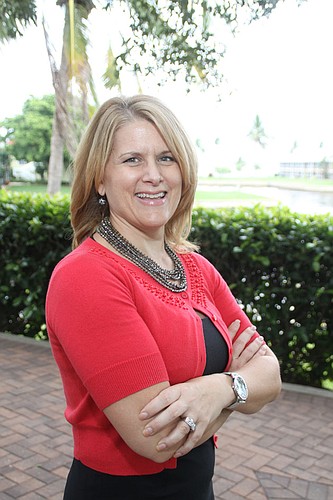- November 26, 2024
-
-
Loading

Loading

Karen Kocher Anderson knows how to find good people. Industry peers in Florida recently named Anderson, the human resources director for Shell Point Retirement Community in Fort Myers, as the best human resource professional of 2011.
The Detroit native oversees a five-person department that cares for 900 employees at Shell Point, a retirement community of about 2,300 residents. Business owners and entrepreneurs might consider her advice for finding qualified employees.
Why it's still hard to find good people: “With unemployment so high, you'd think there would be great candidates,” Anderson says. But mortgage brokers, real estate agents and bankers who once were accustomed to six-figure incomes aren't likely good candidates for housekeeping jobs many are applying for today. “They're not used to manual work. Their heart's not in it. They're going to leave at the first opportunity.”
Online employment boards are a waste of time: Anderson says Shell Point has stopped using websites such as Monster and CareerBuilder to post jobs. “We'd get tons of resumes and we weren't hiring any of them,” she says. Prospective candidates surfed the job boards and clicked haphazardly on jobs that sounded good to them, without any intention of moving to Fort Myers. “We were getting applications and resumes from out of the country and all over the United States,” Anderson says. “It was a huge waste of time.”
Good interns make good employees: Anderson says Shell Point has partnered with vocational schools around Lee County, which require students to complete internships to graduate. Internships are a good opportunity to evaluate future prospects. The local work force development board also has been a good source of candidates. “They will send us people who are qualified and trained,” she says. And Shell Point has its own recruitment site online at ShellPoint.org.
Social media is uncharted territory: Anderson says Shell Point isn't using social media such as Facebook, Twitter and LinkedIn as a recruitment tool. “We're trying to figure out the way to do that,” she says. From what she hears from her peers, though, “they're not getting a lot of return yet.”
On personality tests: “I've never been a big fan of personality testing,” Anderson says. Relying exclusively on such tests could blackball a potentially great employee. Instead, Anderson says observation of a candidate in the workplace and what she calls “behavioral interviewing” often yield better results. For example, instead of asking candidates if they believe it's bad to show up late for work, she asks: “How many times were you late for work in the last six months?” She says prospects are surprisingly candid with answers — and their excuses.
About employment recruiters: For high-level executives, Anderson works with industry recruiters who know good potential candidates, many of whom are already employed but who might be enticed to leave. “There's no way we have time to do that,” Anderson says. Because recruiters work on contingency, Anderson hires two or three to create competition and make them work a little harder.
Red flags: There are ways to identify candidates who might not fit in your organization. Anderson says the first tip-off is when a prospective candidate appears disgruntled about his or her circumstances. Another clue is when their career path doesn't make sense. Gaps in employment can also be a warning sign, though you have to ask why.
Health care reform: The cost of providing health care insurance is likely to keep rising. Anderson says Shell Point recently spent $250,000 to open a wellness office and hired Healthstat of Charlotte, N.C., to screen current employees and identify potential health problems. Shell Point will evaluate the program after 18 months and hopes it will generate enough savings to save Shell Point $2 in health-related costs for every $1 it spends on the wellness program.